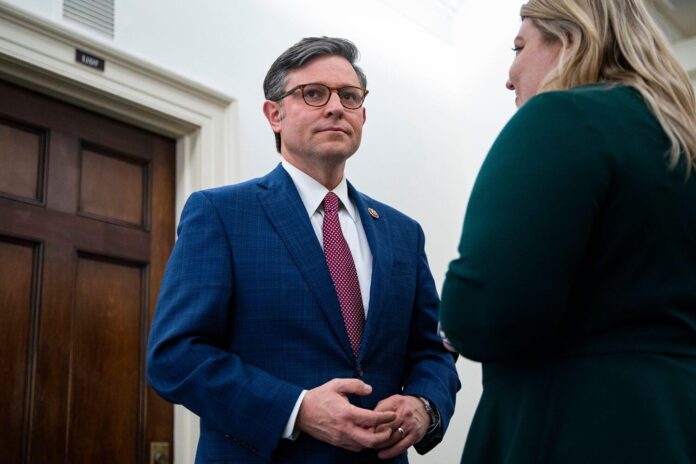Republican House Speaker Mike Johnson’s recent assertion that he would not pursue a federal abortion ban has drawn widespread skepticism from reproductive rights advocates. In an interview with Politico, Johnson explicitly stated that he does not foresee pushing for any nationwide legislation on abortion, aligning with former President Trump’s position that the issue should remain under state jurisdiction following the Dobbs decision. Despite his personal pro-life stance, Johnson cited the need for political consensus and the varied philosophies of his congressional colleagues as reasons for his stance.
However, reproductive rights groups and Democratic politicians are wary of taking Johnson’s statements at face value. Mini Timmaraju, President and CEO of Reproductive Freedom for All, argued that Johnson’s remarks signify a tactical retreat in the face of growing public support for abortion rights, demonstrated by successful electoral defenses of these rights at the state level since the overturning of Roe v. Wade in 2022.
Timmaraju and others contend that Johnson’s claimed position might be a political maneuver to mitigate backlash while maintaining the status quo in states with strict abortion bans. Critics point out the severe impacts these state-level bans have already had, stressing that “leaving abortion to the states” is far from a moderate stance.
The response from other key voices in the reproductive rights community and Democratic leaders further underscores deep mistrust towards Republican commitments on this issue. Indivisible co-founder Ezra Levin and activist Olivia Julianna likened Johnson’s and other Republicans’ previous statements to outright deception, recalling instances like Justice Brett Kavanaugh’s reversal on Roe v. Wade, which he had previously called “settled precedent.”
Echoing this sentiment, Rep. Maxwell Alejandro Frost and Sen. Tina Smith highlighted Johnson’s history of anti-abortion advocacy, including his co-sponsorship of a bill to enact a federal abortion ban. Their calls for Johnson to formally withdraw his support for previous legislation underscore the skepticism about his current stance.
Despite Johnson’s statements, there remains a strong call from advocates and Democratic leaders for proactive federal measures to secure and expand abortion rights nationally. Timmaraju emphasized the necessity for the federal government to commit unequivocally to protecting reproductive freedoms, not just leaving them to the fluctuating political landscapes of individual states.
This scenario underscores the complex interplay between political rhetoric and actual policy-making, especially on issues as divisive and pivotal as reproductive rights. With the 2024 elections approaching, the debate over abortion rights continues to be a central battlefield, reflecting broader national conflicts over women’s autonomy and state versus federal authority in legislating moral and medical issues.



